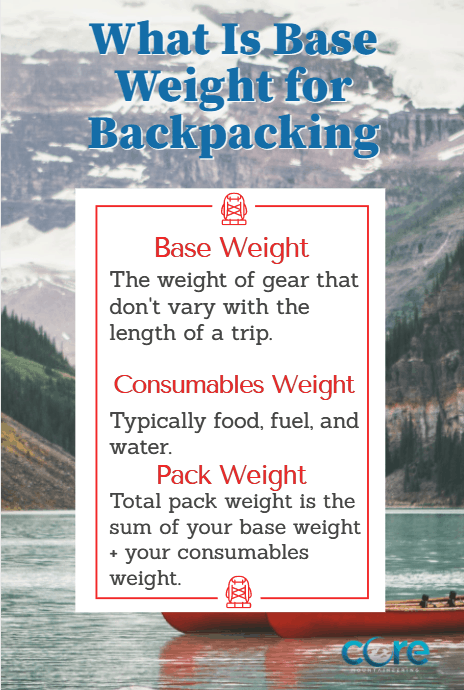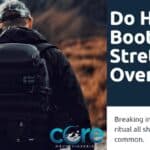When I started backpacking, I kept hearing about base weight. I didn’t know what it was or why knowing my base weight was essential. Hiking and backpacking as a teenager, it never crossed my mind that I should strive to keep my pack weight down. After all, backpacking is just backpacking, I thought.
Although I use just to carry what I thought was all the necessities I needed, I’ve worked on getting my hiking base weight down. So, what is base weight?
Backpacking base weight is the total weight of your entire gear kit, excluding food, water, and any fuel you’re going to use. Exclude any other consumables that you’ll use while hiking too, such as sunscreen, soap, or fire starter.
We’ll look into the reason behind this as well as your Total Pack Weight, but I wanted to point you to an article I wrote about the Ultimate Guide to Choosing the Right Hiking Backpack. I go over special gear you’ll need for different hiking lengths as well as a ton of other stuff.
How is Base Weight Calculated
We just consider the weight of your gear minus the consumables. Why don’t people say what really matters by asking what their entire backpack weighs?
The reason for this is because the amount of food you’re going to carry is dependent on where and how long you’ll be hiking.
While you might carry the same kind of food every time, most people change the volume and weight of consumables every backpacking trip. Going for a short day hike for a few hours will only require a small snack. For a long ten-day hiking trip, half your pack weight might be food and fuel.
Not only food and fuel change, but it’s also dependent on the season. While hiking in the cold season, your base weight will be increase. A more massive sleeping bag, more clothes, and maybe a winter tent all add significant weight to your pack.
It would be difficult to give a hard number on the weight of all the items you carry every time. When people talk about this, they are referring to their total pack weight.
I found a great backpacking calculator if you what to see what your pack weight will come out to over at weighmygear.
Total Pack Weight
This is your base weight plus all your consumables. People also refer to this as just “pack weight.”
While people focus on base weight, your total pack weight is what matters when your boots hit the trail. Or so it would seem.
Since we have to eat, you’re going to bring food no matter what. This is assuming you’re not caching food and water; you can see an article I wrote on how to do this properly, Backpacking With No Water Source.
Consumable Weight
The backpacker’s consumables weight is just how it sounds. It’s everything that will get consumed while out in the woods. Food and fuel are going to weight you down, but this weight is cut down considerably even by the first night.
I always like to weight my fully packed hiking backpack before I leave on a trip. When I get back, I like to weight it again just to see how much weight I consumed.
Why Does Base Weight Matter
It matters because it’s the one thing we can really control. Your food and fuel weight “consumable weight” will be fixed for the most part.
Enjoy Your Hike More
A heavy pack feels fine at the beginning of a hike, but it quickly breaks you down. I’ve been on long backpacking trips with a total weight of 80lbs. This is heavy; by the time we got up to the lake, we were hiking too, I was utterly exhausted.
After an hour or two, there’s not much scenic enjoyment because I was just uncomfortable, ready for a break.
Hike Faster and Longer
With a heavy load, you’re limiting yourself to shorter trails. You can always try and push through it, but then you’re opening up yourself to more injuries.
With a lighter load hiking up to the first destination on the trail will be more enjoyable, injury-free, and you’ll get there a lot faster.
A few less resting breaks will speed up your hike as well. As exhaustion set in, break time rest becomes longer and longer. Being able to skip a few rest stops is one of the best reasons to lighten your pack weight.
Reduce Your Chances of Injury
A lighter load means less strain on your legs, back, feet, and hips. A heavy backpack puts a lot of stress on your body. Reducing the pack weight is even more critical for hikers with back problems.
Since we understand that reducing our pack weight is beneficial, let’s focus on dialing in our base weight down for right now.
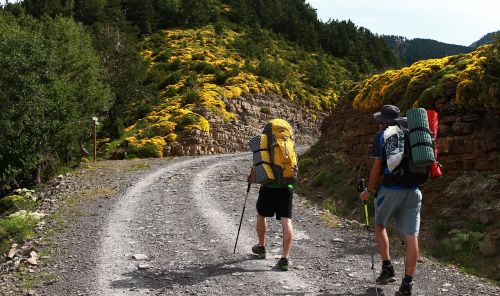
What Should My Base Weight Be
Generally, your total pack weight shouldn’t weigh more than about 20 percent of your body weight. I’m 200lbs, so as a rule of thumb, I should keep my pack weight to around 40lbs.
This comes down to personal preference as well as conditioning. I’m okay with a heavier pack in many cases because I like to bring some hiking luxuries, like my french press for coffee in the morning while I read on my Kindle.
After some trial and error, you’ll find what works best for you.
Day Hiking Packs
Of course, you’re going to carry a lot less weight without a sleeping bag and tent. This is one of the beautiful things about a simple day hike.
It’s recommended to look at only carrying 10 percent of your body weight for day hiking. At 200lbs, my day hike pack should be no heavier than 20lbs. It’s usually less than that as I only carry the minimum for a quick day hike.
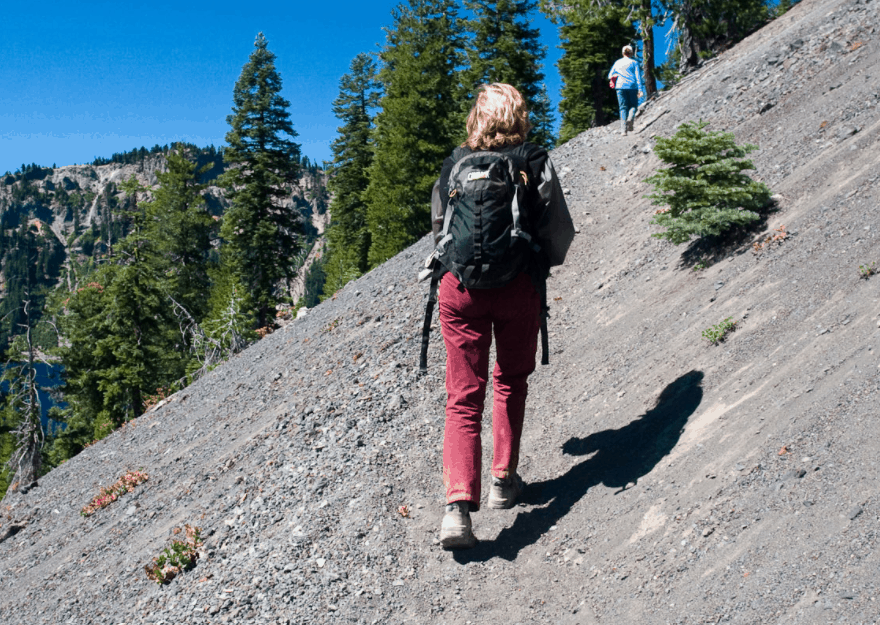
How to Reduce Pack Weight
A couple of things will accomplish a reduction in pack weight but let’s look at the hiking gear we already have.
After you’re done with your next hike, or if you remember your last, take a serious inventory of what you used out there. Did you use everything you packed? Chances are a few pieces of gear that are not needed.
When I first did this after a hiking trip that lasted a few days, I realized I overpacked. I never ate that giant bag of almonds, and I packed too many clothes.
Keep in mind that you don’t want to compromise your safety by removing certain items, such as a first-aid kit.
Of course, this comes down to personal preference; if you enjoy using an e-reader, go ahead and take it with you hiking next time. I know that I enjoy using it outdoors, so I don’t mind the extra weight.
One item that I removed from my pack was my DSLR camera. While I would love to take excellent pictures in the best quality, it just weighs a ton; my phone is good enough.
Meal Plan
We’ve all done it, brought way too much food on the trail. Chances are you’ve unpacked, putting all the food back in the pantry, and thought to yourself, “why did I think I was going to eat all this?”
The best way of avoiding bringing too much food is by doing a little planning. You don’t have to get down to the gram but think about what you’re going to eat every day and bring a little extra to be safe.
Shoot for around 1.5 to 2.5 pounds of food (or 2,500 to 4,500 calories) per person per day. You know your body, so if you’re a big eater, you might want to be in the upper end of this scale.
This also includes snacks on the trail. We want to avoid carrying too much food back home.
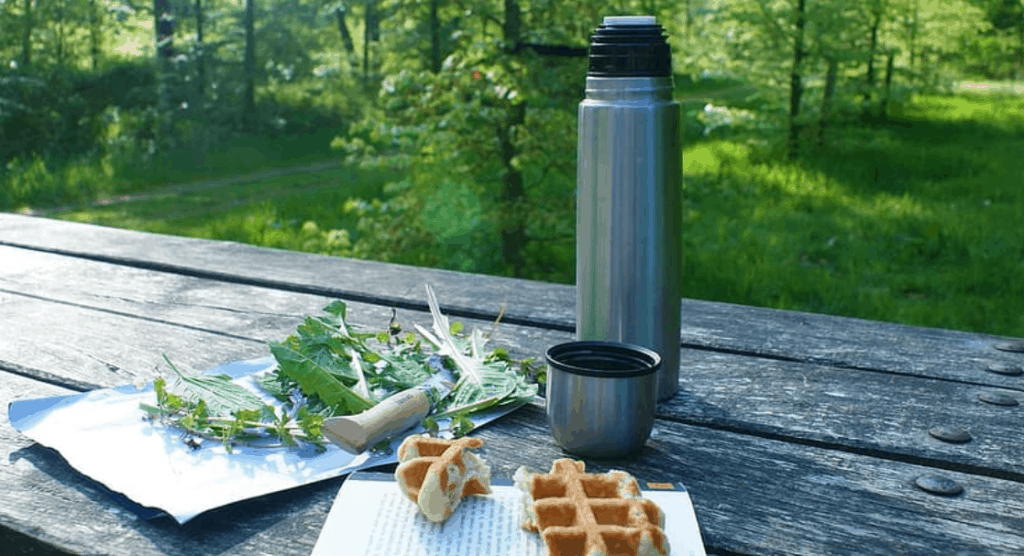
Focus On The Big Three
Now that we have some of the smaller things out of the way, lets now focus on the heavy gear. The next step in reducing weight is getting new equipment or finding gently used camping gear.
The big three is a tent, sleeping bag, and your shelter. You’ll find that focusing on these will be the biggest bang for the buck.
Over the years, backpacking gear has gotten lighter and better. Some ultralight hiking backpacks weigh close to nothing.
We have had goose down sleeping bags for a long time, but technology has brought us these sleeping bags that are lightweight while almost being waterproof.
Ultralightweight tents are expensive, but using a Sil Tarp for shelter can be comfortable with the entire sleeping system fitting in a pocket. I go into detail about shelters and using tarps in this article.
Be aware, that as gear gets lighter the cost goes up. This is specialized lightweight equipment made with expensive fabric.
There are three ways of getting around buying expensive hiking gear. The first and most obvious is to borrow items from a friend. Chances are if you’re getting into backpacking, you don’t have a friend with a lot of lightweight gear to borrow, but you can always ask around.
The next is to buy used. This will be the most time consuming, and you can never be sure what you’re getting, but you have had a reasonable assumption on how the piece of gear was treated by the looks of it.
The last way is to rent some of the gear you need. This is a great option. It comes in the mail clean and ready to use. I wrote a great article where I called the top 7 outdoor rental companies in the US. I received quotes from all of them for common camping gear and received insight into their customer service. All of them ship nationwide.
Wrapping Up
Mostly reducing your base weight and pack weight comes down to needs and wants. Planning what you’ll need and want as well as not overpacking food.
If you’ve found a trick or two with reducing your base weight, let us know down in the comments, and we’ll add it to the list!


